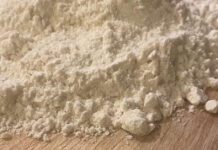Regardless of whether emotional, physiological or environmental, excessive stress disrupts the body’s equilibrium, impacting just about every internal system including the immune, digestive, muscular and integumentary (skin and hair) systems. It’s no surprise that up to 80% of people diagnosed with an autoimmune disease experienced unusually high levels of stress prior to onset. And If you already have an autoimmune disease stress is a known trigger of flare-ups.

Random House Dictionary defines stress as a “specific response by the body to a stimulus, (such) as fear or pain, that disturbs or interferes with the normal physiological equilibrium of an organism”.
Sometimes stress is caused from an external source. Sometimes, it comes from within. It really doesn’t matter who, what, when, how or why the stress occurred. Your body processes it all the same way.
Cortisol and the Stress Response
Our bodies produce a chemical known as cortisol, a steroid hormone, that is transported through our entire body through the bloodstream. Cortisol generates glucose, or sugar by breaking down stored proteins in the liver. The glucose then provides fuel to the heart, brain, lungs and large muscle groups.
We experience the effects of cortisol as mental and physical energy. Along with epinephrine, cortisol is a key player in the“ fight or flight” reaction. Since cortisol travels through the bloodstream it affects every process from blood pressure, metabolism, and memory formation to controlling the balance of salt and water and immunity.


Another important role of cortisol is to reduce levels of inflammation throughout the body.
Under moderate stress, the immune system, which uses up a significant amount of your body’s resources, is suppressed, so that more energy can be diverted to your heart, brain, lungs and large muscle groups.
Ideally our bodies would return to a resting state at the end of the crisis and optimal immune function would be restored. However during prolonged, chronic levels of stress, the immune system stays suppressed indefinitely, making us more susceptible to colds and viruses.
As a result of the prolonged levels of stress, cortisol levels never go back down to their pre-stress levels. Soon the body’s cells become resistant to the regulating power of cortisol. Now instead of controlling inflammation as it once did, excessive cortisol leads to increased inflammation throughout the body. This inflammation is the precursor to a diseased body, particularly autoimmune disease, as our immune system turns on the body it was designed to defend and begins attacking our own cells.


You May Also Want to Read:
Harness the Power of Your Mind to Improve Your Symptoms
87 Self-Care Tips For Women to Avoid Burnout
50 Positive Quotes on Anxiety to Help Quiet Your Mind
Ultimate Guide to Traveling With Chronic Pain
7 Stress Relieving Activities
We can’t always control the stressors in our lives but we can minimize their physiological impact. By invoking “the relaxation response”, a physical state of deep rest that decreases blood pressure, we can automatically slow breathing and heartbeat and relax the muscles. Unlike the fight or flight reaction brought on by stress, the relaxation response allows our bodies to “rest and digest”.
- Slow deep breathing triggers neurons in the brain that reduce anxiety and ushers our minds to a state of calmness.
- Meditation helps us to relax and stay “in the moment”, focusing on our breath, our bodies, or even a word spoken repetitively over a period of time.
- Yoga connects the mind with the body through physical poses, breath control, relaxation techniques and meditation.
- Exercise causes the brain to produce chemicals called endorphins that help to increase the feeling of pleasure, relieve pain and improve sleep.
- Listening to soothing music stimulates electrical impulses in the brain known as alpha waves that are associated with a relaxed mental state.
- The effects of aromatherapy, which uses essential oils extracted from plants, flowers, leaves and roots, are transmitted directly to the brain, where it can have a positive impact on motions, mood, and memory.
- Sleep calms and restores both body and mind and reduced chemicals like cortisol that are heightened during the stress response.
Whether you select one of the activities above or practice one of your own choosing, find a relaxing activity that you enjoy and practice it consistently, even in the absence of stress. You’ll be better prepared for stress when it does rear its ugly head.






















